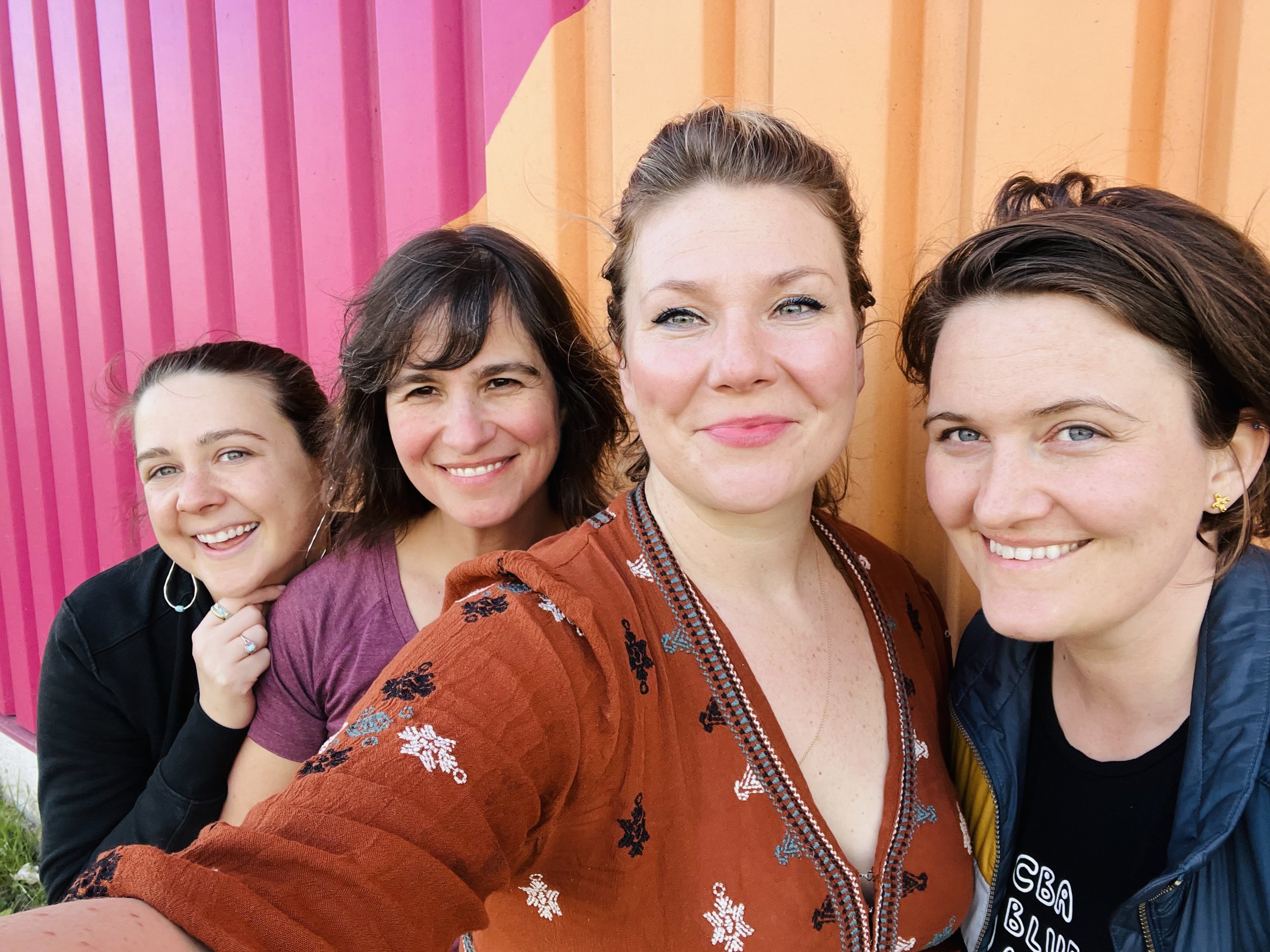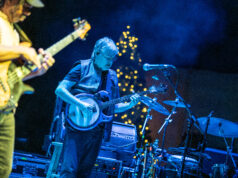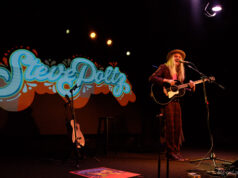A recent show at The Hamilton Live was a homecoming for all-female bluegrass group Della Mae. Fiddler Kimber Ludiker and Avril Smith, the band’s original guitarist, live in Silver Spring, Maryland. Smith works in the District as a labor organizer.
Making the leap from musician to labor organizer might not seem like such a change when you consider Della Mae’s material. They are a stridently political and feminist band. Their passion for labor issues was clear on “Boston Town” and a cover of the country classic “Sixteen Tons.” They covered the classic protest song “Ohio,” about the shooting of four students at Kent State University by the National Guard, and they closed their set with the feminist anthem, “Headlight,” written in response to the sexual assault allegations made against Supreme Court nominee Brett Kavanagh.
Della Mae told the audience, “love one another, believe one another, support one another.”
We go to music, sometimes, to escape from the troubles of the world, but we can’t completely escape the world. At The Hamilton Live on Oct. 26, lead singer Celia Woodsmith, who lives in Maine, said she woke up that morning with her home surrounded by police cars, following the deadliest mass shooting America this year. The anti-gun song “The Way It Was Before” was a timely choice for their set.
Watch Della Mae perform “The Way It Was Before” by Della Mae on YouTube:
Bluegrass is traditionally a genre that emphasizes playing skill. And the ladies of Della Mae have plenty of it. Ludiker is a two-time national fiddle champion. (Does that championship come with a title belt? I think it would be funny if she wore a title belt on stage.) Bassist Vickie Vaughan recently won the International Bluegrass Music Association’s Bass Player of the Year award; she was the third woman nominated and the second to take home the prize.
While Della Mae’s picking holds up to anyone, they place an unusual emphasis on their songs and songwriting. While they pepper their sets with covers — Thursday night, they played Blind Melon’s “No Rain” and, for their encore, “Can’t Let Go,” written by Randy Weeks but made famous by Lucinda Williams — the bulk of their sets consists of original tunes. One of those tunes, “My Own Highway,” is a new one that hasn’t been released yet.
The set opened with “Bluebird, Blackbird,” followed by “Dry Town.” One of their songs, which I didn’t get the title of, a response to a Del McCoury song, is “as grassy as we get.” Another, written by Vaughan and a friend in Nashville, was inspired by that friend’s daughter getting into cross-country running. In true bluegrass fashion, there was an instrumental, “No-See-Um-Stop,” which is about bugs. “Nothing At All” is a love song Woodsmith wrote for her husband. Other songs in the set included “The Most,” “Won’t Be Long,” and “I Like It When You’re Home.”
Openers Heather Mae and Crys Matthews describe themselves as “social justice songwriters.” Partners on and off the stage, their songs explore race, gender, and sexuality. This show was also a homecoming for them. Heather grew up in the area, and the couple lived her for several years, before moving to Nashville. Their songwriting has been recognized as skillful; Heather Mae won the International Folk Song of the Year. Their set included “Women I Used To Be” and “Calmin’ In The Chaos,” and they were joined by Della Mae for “We Must Be Free.” (They later joined Della Mae for “Headlight.”) Their music meshed well with Della Mae’s, having similar themes and topics.
At one point in the show, Della Mae noted they’ve been around for 13 years now. They’ve outlasted almost every band who started out around the same time, and they’ve done it with great performances and great songs.






